Visit Pampaneira in the Alpujaras area of Granada, to experience, for a day, traditional rural life in an isolated village.
By Nick Nutter | Updated 25 Aug 2022 | Granada | Villages |
Login to add to YOUR Favourites or Read Later
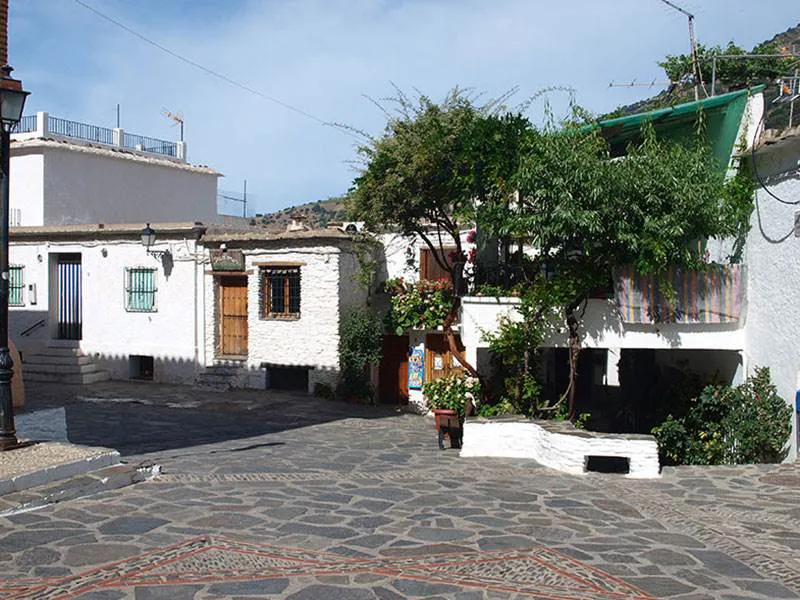
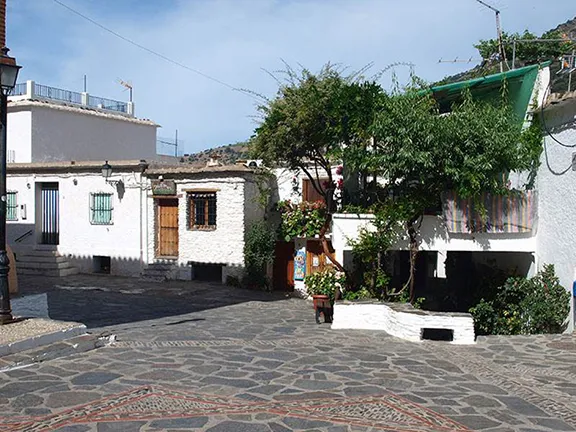
The square in Pampaneiro
With a population of 300 or so the tiny white village of Pampaneira, perched at 1060 metres altitude in the Alpujarras, does not exactly hum at night. But night life is not what visitors to this place want. Many are walkers, others are there to experience, for a day, traditional rural life in an isolated village.
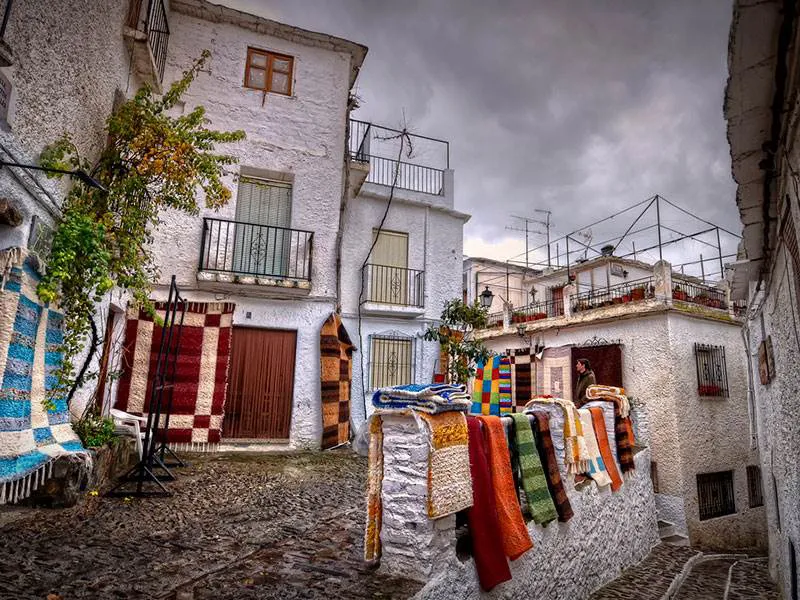
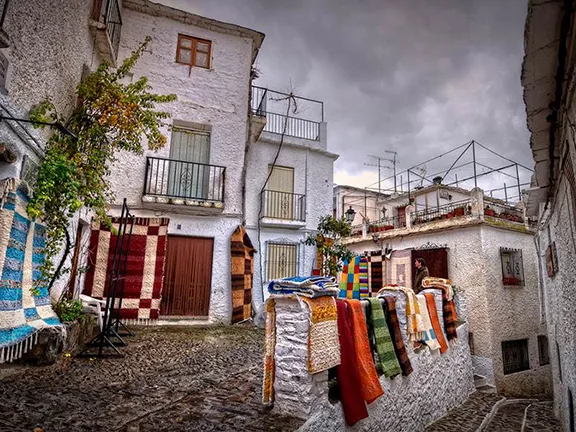
Textiles - a cottage industry
Although Pampaneira dates back as far as Roman times, the name itself derives from pampinarius meaning producer of small bunches of grapes, the street plan is clearly Berber. It was the Moors that introduced the now forgotten, in the Alpujarras, industry of silk making and the Christians from as far afield as Leon and Galicia who were shipped in to repopulate the area after the conquest that brought with them the gaudy coloured rug manufacturing cottage industry you see today.
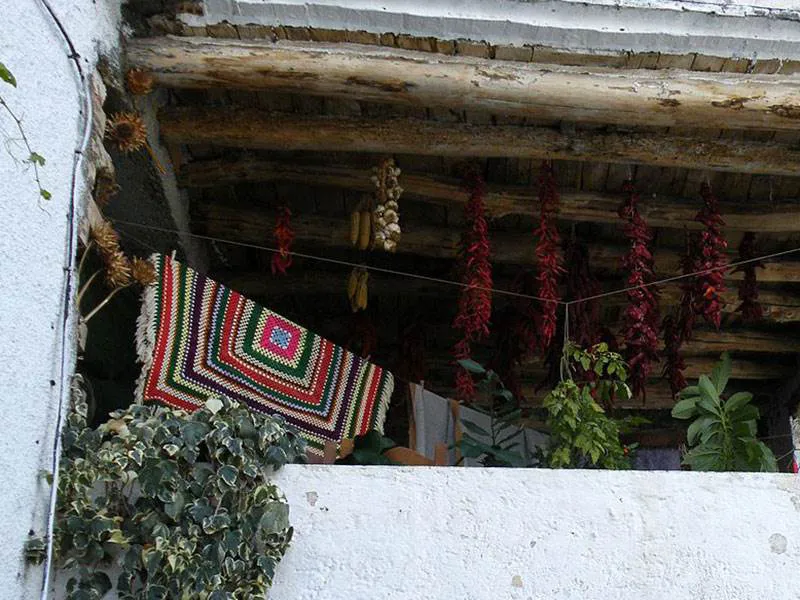
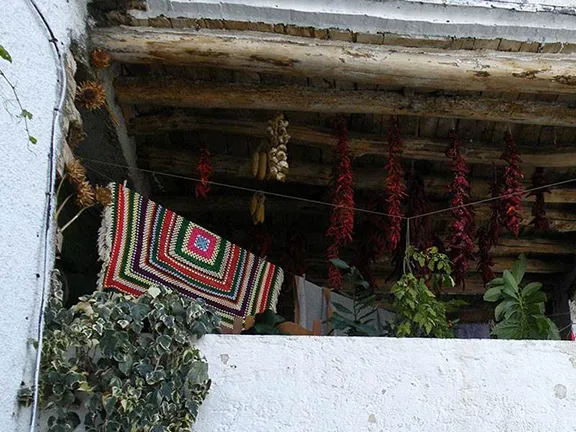
Drying peppers, tomatoes and garlic for the winter
The narrow, pretty, whitewashed streets with vibrant planters and baskets are centred around the main and only square with its scattering of cafes and bars. Colourful umbrellas shade the morning coffee crowd from the searing summer sun blazing down from an azure blue, cloudless sky.
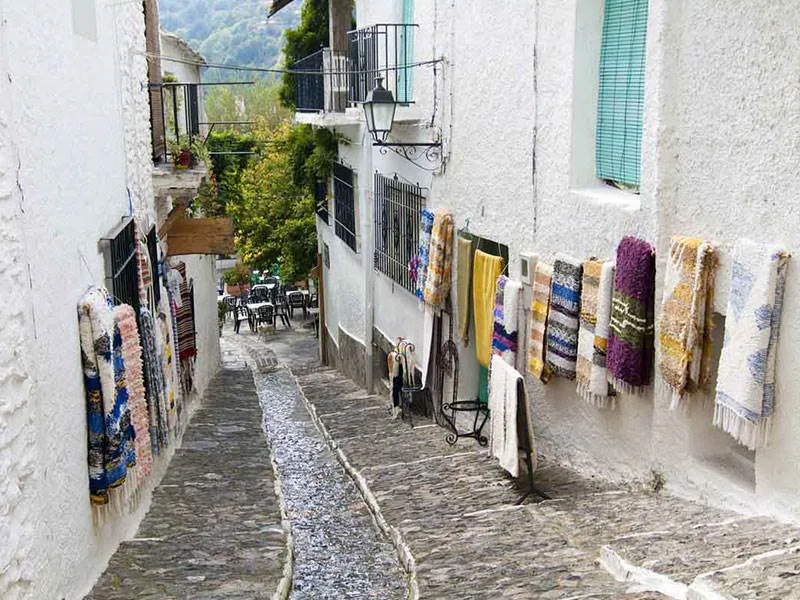
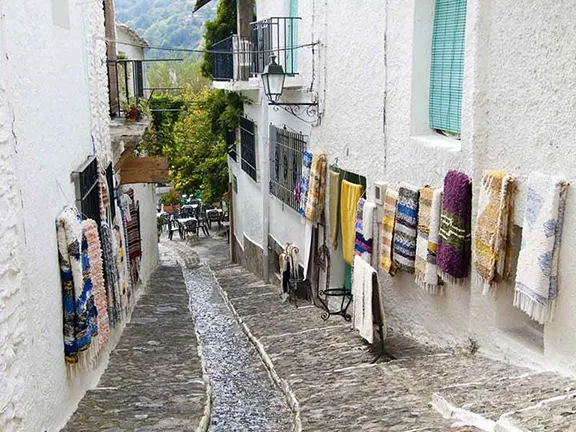
Storm gullies in Pampaneira
In autumn the flat roofs of many houses are strung with peppers and tomatoes drying in the mountain air whilst below the souvenir shops sell locally made textiles, leather goods and ceramics. Honey, cheese and ham are produced nearby. It all looks and sounds idyllic, one might even dream of living here.
However there are signs that all is not quite so ideal all year. Notice the, not so much storm drains as storm gullies, that wind down the steeper streets. They are designed to carry a lot of water. In extremis the streets themselves act as tributaries carrying water from the slopes above into the river in the Barranco de Poqueira gorge below. The long, round, capped chimneys, almost a trademark of the Alpujarras region, guarantee a good draw in high winds. The altitude promises snow in winter. Notwithstanding the drawbacks it is all very charming.
So charming is Pampaneira that, in 2006, a Junta funded institution with the improbable name of the Association of Historical Settings and Popular Architecture of Andalucia introduced a programme that involves twenty three villages of Andalucia; Alajar, Almonaster la Real, Aroche, Linares de la Sierra, Zufre, Cazalla de la Sierra, Constantina, Guadalcanal, Bujalance, Dos Torres, Montoro, Pedroche, Bubion, Capileira, Castril, Pampaneira, Arquillos, Banos de la Encina, Guarroman, Montizon, Vilches, Velez Blanco and Velez Rubio. The programme is part of the Sustainable Tourism Programme, ‘Conjuntos Historicos de Andalucia’, (Historic Settings of Andalucia) and its aim is to create a competitive tourist destination.